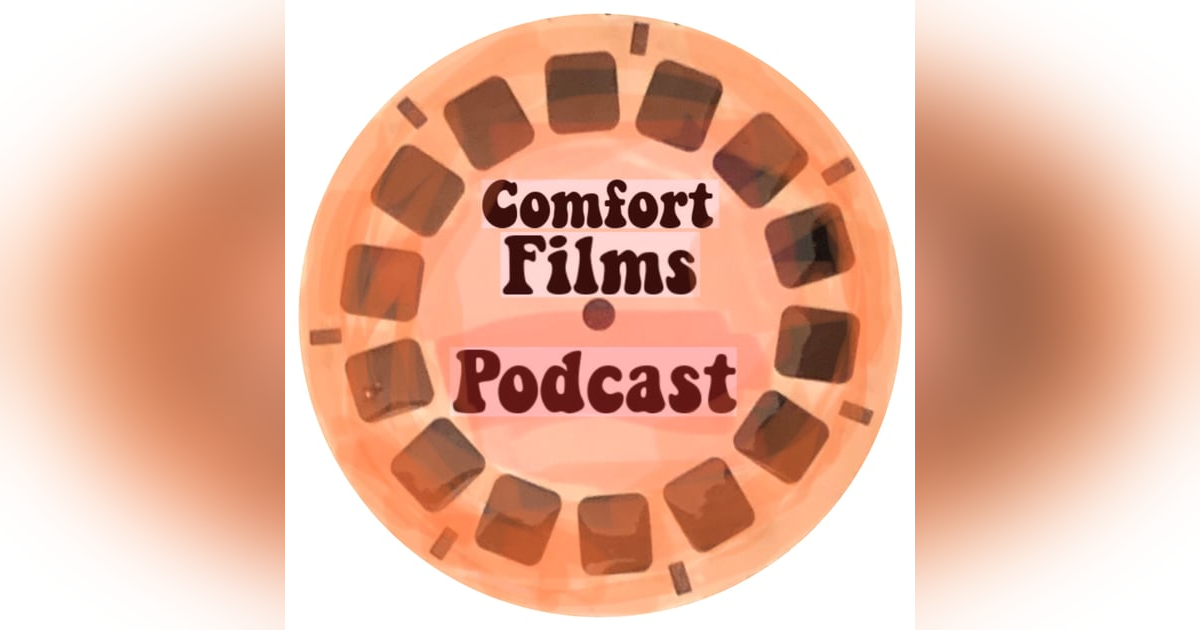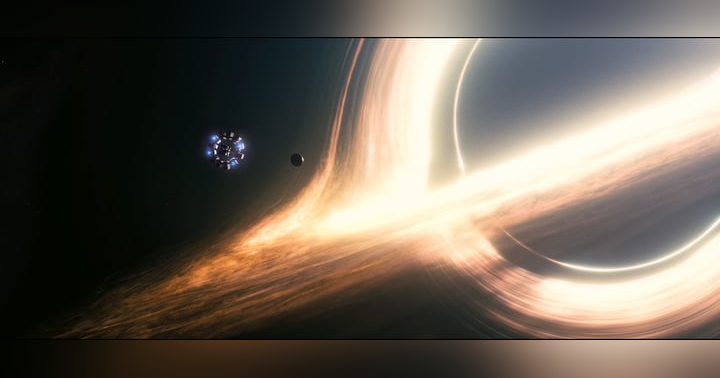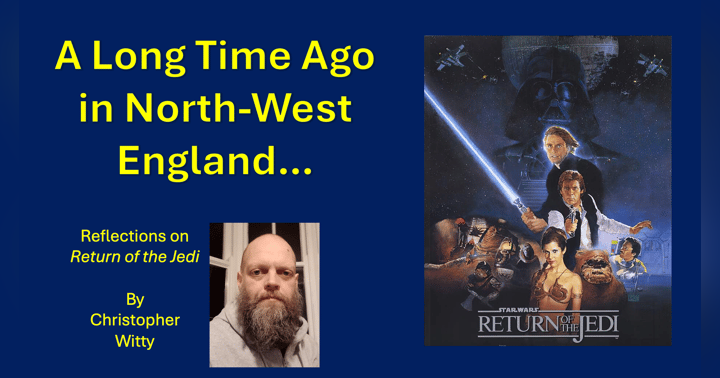Star Trek II: The Wrath of Khan and the Acceptance of Death

I’ve talked a few times on the podcast about how my media taste as a child was directly related to not liking anything that my dad liked. It was not that I intentionally tried to be a contrarian with him; we are polar opposites in any number of ways. I’m a super introvert who would rather die than engage in small talk; he’s a super extrovert who has never met a stranger. His MBTI is ESTJ, whereas I’m an INFJ. We only share the “judging” factor, which is honestly the least important one in my opinion—more of a flavoring than an ingredient when it comes to personality profiles. Our politics are far enough apart that I wouldn’t even consider that an appropriate discussion topic, since I’m not heavily interested in arguing with a brick wall. He loves math; I quit taking math classes as soon as I possibly could, in order to study my loves of English literature and history (his least favorites). Our birthdays are even in direct opposition. Mine is January 3 and his is July 3; they couldn’t be further apart. Some of these differences can be written off as coincidental, but some of them are significant. Even though we care about each other a lot, we have different values and interests in life, so the things that we focus on are generally very different. One major exception is Star Trek[1]. Even though I’m an original series nerd with a secondary interest in Voyager and my dad is a major The Next Generation guy, we both find things to love in Gene Roddenberry’s visionary world and its many outgrowths.
I can’t say this was always the case. My dad loved TNG during its original run, but at that time, I was around 10 and didn’t think there was anything interesting about some military-in-space story. I preferred my space opera to be Star Wars, with its fantastic aliens and laser swords; the heavy political storylines of Star Wars wouldn’t really become a huge factor until The Phantom Menace. I saw a few episodes and thought it seemed kind of okay, but nothing I needed to tune in for.
I don’t know how it happened, but much later, in the mid-00s, I ended up seeing the “A Piece of the Action” episode of Star Trek (the original series). I fell in love with it instantly. I found the show wonderfully campy on the surface, and socially conscious and complex beneath. William Shatner’s Kirk was at his chaotic best in this episode, as always, managing to find just the innovative and unique solution to their problem. Spock, who I’d only seen as cold and logical before, was a fish out of water in this episode, trying to figure out how to blend in with 20th century gangster culture. And Dr. McCoy’s wryly humorous approach to every situation was something I could aspire to, as another appreciator of absurdity. I quickly binged the rest of the series, becoming more and more enamored of the characters. I also watched all the films, and through them, I got to know the TNG cast again. I ended up watching that whole series as well, and I gained a new appreciation for the show that I had dismissed when I was a kid.
Part of the appeal of Star Trek for me is the vision of a future where people are committed to a more generally beneficial way of life for all, and diplomatic solutions that keep everyone in mind, regardless of race, class, beliefs, or any of the other things that separate us from each other. (As a person who is fairly pessimistic about our capability as a planet to come together for this to be achieved in reality, this facet of the show approaches fantasy more than anything I’ve seen in Star Wars.) But the relationships between the characters are what keeps me coming back to watch the show and movies over and over. I love the way that Kirk, Spock, and McCoy interact. My dad always appreciated Spock’s commitment to logic, but I actually find Spock to be the most deeply emotional character in the show. He just doesn’t let those feelings interfere with his decision-making process. McCoy, on the other hand, is a temperamental being with his heart on his sleeve, and a tireless fighter for what he believes is right. Kirk combines the best of both his friends in his measured but comprehensive approach to every situation; he is always trying to make the right choice for everyone, and as we see in Wrath of Khan, he doesn’t believe in the no-win scenario. In “Space Seed,” marooning Khan and his followers wasn’t Kirk’s ideal solution, but it was the best option available under the circumstances, giving Khan’s crew the opportunity to start a life in a new place and make their own way, even though they were following a leader with tremendously flawed ideals. It’s not Kirk’s fault that the planet Khan was left on became uninhabitable, but Khan can’t see that. He’s blinded by anger and ego, unable to believe that he could have failed, given all his advantages. Like Kirk, Khan never believed it possible that he, of all people, could lose.
In the end, Kirk also has to accept loss, if not defeat. The Enterprise crew are able to escape destruction, but only due to Spock’s sacrifice. Spock understands that in order to save everyone else, he, as the most physically strong person, is the only one that can survive the radiation long enough to repair the core breach. Spock has analyzed all the options and found that his sacrifice is the one that will allow for the survival of the greatest number of people. It’s not that Spock doesn’t have feelings about his own death—it’s that those feelings can’t get in the way of the simple ethical problem he’s trying to solve. He removes all the obstacles in his path to achieve his goal (including Dr. McCoy), even though he won’t survive it. Once Kirk understands what has happened, he rushes to the warp core, but it is too late. Spock didn’t leave him any options. Kirk’s impulse is still to fight—to reach his friend and find some way to fix the problem. But there is no winning in this situation. There is only the opportunity to say goodbye to his friend and share a final moment together.
Regardless of the events of the next film, this scene is one of the most powerful in the Star Trek canon for me. Of the three main characters in the original series, Kirk is always the one I related to the least. I’m a temperamental southerner with a huge penchant for helping others and fighting for the little guy, so McCoy is certainly a kindred spirit of mine. If I imagine myself in the Star Trek universe, I imagine working on the Enterprise as part of the medical team, perhaps as a psychologist. (My favorite TNG character is Troi, by a mile.) I also feel a kinship with Spock. Others may not view me this way, but I always feel like a little bit of an outsider, never quite fitting in perfectly in any group. I think differently than other people, and I feel things very deeply, but never make decisions based on those feelings, which I know has caused more than a few people to see me as cold. I think Captain Kirk is wonderful, but I don’t see myself in him. He’s too much at ease in his own skin, too dynamic, too energetic. Someone I would undoubtedly admire and seek out as a friend, but never quite understand. But at the ending of Wrath of Khan, that all changes. In spite of all his responsibility to his crew, his knowledge that Spock has done the only possible thing to save them all, and his understanding that there was no way to game the system and “win” this scenario, all Kirk feels is desperation in the face of death. He has seen death may times over the course of his career and has undoubtedly grieved, but this loss feels impossible.
My dad is currently in the last stages of Parkinson’s, and in a couple of weeks, I’m about to go visit him for what is sure to be the last time. Even though I’ve known for years that this time would eventually come, I’m struggling mightily with accepting it. Like Kirk, I’ve experienced grief, but this loss feels impossible. I’d love to be able to face it like Spock, with measured emotion and logic. But I’m just not there yet. My mind still wants to find a way to fight against it, to look for the unique and wildly novel solution to fix this, even though I know the finality of this disease is a foregone conclusion. One of the saddest things about this for me, as silly as it might sound to other people, is that I won’t have a chance to keep talking about Star Trek with my dad. When I finally have the time to watch Picard or Discovery or Strange New Worlds, or whatever comes next, it will be on my own. I am also afraid that I won’t be able to enjoy these things the same way without him. But my hope is that I will be able to tune in at some point in the future, once things don’t feel so raw. I will think of his great joy in these stories, his fascination with the science and philosophy of encountering alien life, and his crushes on all the blonde and red-headed space babes. And I will think of my dad out there in spirit, boldly going where none of us has gone before.
Comfort Films 19: Star Trek: The Wrath of Khan (Released February 5, 2022)
[1] Another major exception is martial arts movies.







